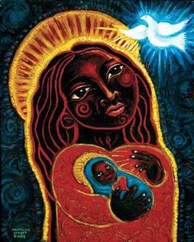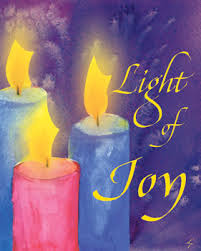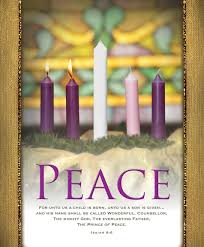
https://www.preaching.com/sermons/its-whats-inside-that-counts-an-object-lesson-using-gift-wrap-ribbon-bow/
https://www.stjamesedison.org/godhttps://catholic-link.org/matter-jesus-wrapped-swaddling-clothes/s-wrapping-paper-christmas-sermon-2018/
https://waterfromrock.org/2009/12/22/bands-of-cloth/
https://aleteia.org/2019/12/21/the-symbolism-of-swaddling-clothes-at-jesus-birth/
https://latterdaysaintmag.com/what-does-it-matter-that-the-lord-was-wrapped-in-swaddling-clothes/
https://www.calledtoshare.com/2018/12/20/why-swaddling-clothes-of-jesus-is-mentioned-three-times-in-the-nativity-story/
One of the most endearing, images I have of Christmas, deeply etched on my heart to this day, is the sight of a decorated tree surrounded by beautiful presents through my childhood eyes. What a magical, wondrous image. Who’s with me on this? Whether humble or grand, who couldn’t wait until the early morning hours, tearing down the stairs, shrieking with delight at the thrilling image of a twinkling tree, with presents waiting to be claimed, stockings whose contents ready to empty.
Now from decades of observations and opening countless gifts, I have noted two types of gift wrappers. There are those who carefully pick out beautifully colored paper, who lovingly select color-coordinated ribbon and bows. The wrapping paper is precisely, expertly folded with just the right amount and no more. Labels are carefully written in one’s best penmanship. The end result is a masterpiece – a work of art – that one laments having to tear to reach the gift contained within.
Then there are the other gift wrappers. Paper is haphazardly taped on – patterns are crooked, different types of paper are used with no care to match. You’re lucky if a lonesome bow is affixed. Names are illegibly written, and a family guessing game ensures to figure out the proper recipient. There are those who use recycled gift bags year after year, with tissue paper crammed in to barely cover the gift. I must confess I fit in the later group. We get home after Christmas Eve services, usually by 11pm, we dump those gifts into bags along with last year’s tissue paper and viola! All presents wrapped in 10 minutes or less. On to the egg nog and Christmas cookies.
Down through the ages, God has proven to be an amazing gift wrapper. Creation is but stunning wrapping paper that reveals the beauty of God – dazzling sunsets and sunrises, mighty snow-capped mountain peaks, the force of the wind that we are experiencing this weekend, the stunning diversity of creatures, fields, forests and flowers, to the vastness of the cosmos – amazing wrapping paper, isn’t it? To top it off, on Christmas, we remember that God, the master gift-wrapper, put on human flesh in the person of Jesus Christ. God could have shown up as an angel, some other spiritual creature or alien being. God could have chosen to skip the baby stage and gone straight to being a strong adult, a king, a warrior, as many actually believed the messiah would be. God could have revealed Godself in any manner feasible. But the piece de resistance of God’s wrapping abilities is in enveloping his love, his mercy, his redemptive saving power, in the human flesh of a helpless baby.
What a contradiction in terms: a baby savior. A baby is small, weak, helpless. A baby is vulnerable to illness, fevers and diseases. A baby needs to be fed, burped, changed. A baby needs to be kept warm, held for comfort, kept clean and safe. A baby we fall in love with at first sight. Talk about unexpected wrapping paper for God’s gift to the world! This wrapping paper is something we can touch, hold, embrace, kiss, hold closely to our heart. This wrapping paper stirs our emotions, aligning us with God’s purpose for our lives – all the while wiping away all sins that dim our abilities to love and connect to God and each other. Some wrapping paper, isn’t it?
If that wasn’t amazing enough, we hear of even more unexpected wrapping paper in Luke. We read that Mary, Jesus’ mother, wrapped her new-born son in bands of cloth.
In my imagination, I see those bands of cloth as humble material, made not from super-soft silk but ordinary cloth, humbly homespun. Common and ordinary, something everyone would have. But there is more to this that meets the eye. In Luke’s story of Jesus’ birth, the angels tell the shepherds, “This will be a sign for you: you will find a child wrapped in bands of cloth and lying in a manger” -- an animal’s feeding trough. This phrase, at least in part, is repeated three times in the Nativity story (Luke 2:7, 12, 16), so this sign is significant. Pause and take this in: God chose to wrap the most precious gift to humankind, a gift thousands of years in the making, in ordinary human flesh, with ordinary household cloth, in a manger meant for animals, not human beings. What kind of gift-wrapper is this? But wait -- there is more to this story.
There is a tradition that the shepherds, who in the hillside were not too far from Jerusalem, provided the “lambs without blemish” for the temple sacrifice at Passover. That first new-born lamb, to protect it from blemish (as it was required to be by the Law), was wrapped in swaddling cloth and placed in a food trough apart from the other sheep. What again did the angels say? They would find the Savior, Christ the Lord, wrapped just like they wrapped the sacrificial lamb. This amazing, wrapped Baby was also the perfect lamb of God, who takes away the sins of the world.
This wrapping paper, the bands of cloth, would point us to Jesus’ death. Recall that the Gospel of John tells us that the dead bodies of Lazarus, and the Lord Jesus were wrapped in “bands of cloth” (John 11:44; John 19:40; 20:5-6). But wait, there is more. The Hebrew word, of which “swaddling” is the English translation, denotes cloths used in the binding of broken limbs (Ezekiel 30:21). This symbolically relates to Christ’s ministry of healing the spiritually broken (Ezekiel 34:15).
Thus, Christ our Lord begins and ends his life wrapped in bands of cloth. Throughout his earthly life he carried out a ministry of binding the sick in body and spirit. This is his reason for coming. To wrap up our salvation is ways our hearts could grasp, our eyes could, our minds comprehend, and ultimately so that our hands could receive such an amazing gift, beautifully wrapped only as God could do it.
Ambrose, the fourth- century bishop of Milan, put it this way: “He was wrapped in swaddling clothes, so that you may be freed from the snares of death. He was in a manger, so that you may be in the [temple]. He was on earth that you may be in the stars. He has no other place in the inn, so that you may have many mansions in the heavens. ‘He, being rich, became poor for your sakes, that through his poverty you might be rich’ (2 Cor. 8:9).”
That first Christmas is not the end of God using unexpected wrapping paper for gifts. Remember that God the Eternal Gift Giver, has continued throughout history to use unexpected wrapping paper for divine gifts to humanity. God uses our human flesh to continue to convey the good news of salvation to all humankind. God uses our lips to tell of Jesus, our arms to embrace the lonely and stranger, our hands to feed the hungry and house the homeless, our eyes to see injustice and oppression and to respond with right living. We are God’s every day, amazing wrapping paper to tell the tidings of great joy to all the earth.
This Christmas Eve, unwrap that precious gift God gave us in Jesus. God’s saving love wrapped in a baby-savior. Take up this present in your arms and hold it close to your heart. Look with childhood wonder on this amazing, beautiful gift. Tear that wrapping open with the glee of a child. Then let God’s glory shine in you and through you, and may it forever shine bright, bringing love and glad tidings of great joy this Christmas and every Christmas forevermore . Amen.



 RSS Feed
RSS Feed